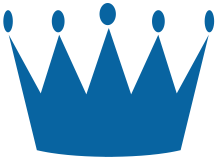Written by Claire Banks and Mick Waters, A Curious Curriculum: Teaching foundation subjects well details the insightful and transformational steps that a school can take towards designing and delivering a rich, rigorous and wide-ranging curriculum.
Foreword by Mary Myatt.
Rather than being a model curriculum that can be uprooted and planted in any school, the book is a model schools can use to design their own curriculum, one that not only encourages children to be active participants in their own learning, but also to see the benefits of being part of a bigger, wider family of learners.
The authors concentrate on the foundation subjects, particularly history, geography and science but also design and technology (DT) and art and design – areas that are often challenging for teachers in primary schools. Subjects are brought together and explored under “big ideas” and, crucially, the emphasis is on avoiding the superficial and trivial and rooting teaching in extending and challenging children.
In A Curious Curriculum, Claire Banks and Mick Waters share the story of one multi-academy trust (MAT) which designed and delivered a shared educational vision, a rationale for excellence in the curriculum, and the resources and support given to help reduce teachers’ workload.
Claire and Mick present a clear model both for supporting a group of schools or leading one school, offering a fresh perspective on working on a MAT-wide curriculum, as well as providing a range of snapshot examples of the curriculum in action – in the form of documents, plans, photos and the learners’ own work. The book shares transferrable lessons from the trust’s journey to success, setting out an educational philosophy that pairs pedagogy with a well-structured curriculum designed with learners’ best interests at its heart.
All children deserve an engaging, exciting curriculum designed to spark their curiosity, feed their imagination and develop their skills and knowledge. With clear timelines and an honest and transparent dialogue about the challenges and benefits of working together collaboratively and the importance of external expertise, A Curious Curriculum is an essential read for all school leaders.
Suitable for executive leaders, head teachers, curriculum coordinators and subject leaders in primary school settings.

